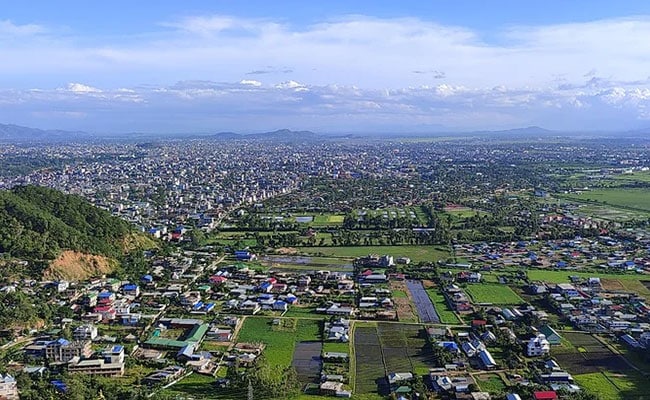
Standing in solidarity with the victims of the ethnic conflict in Manipur, women from the Meitei community on Wednesday did not celebrate Ningol Chakouba, the biggest festival of the community.
Ningol Chakouba, which the Meitei community celebrates after Diwali, is similar to Bhai Dooj except that in Manipur it is the brothers who welcome their sisters from their matrimonial homes for a grand feast.
Several groups of women sat on hunger strike in the valley areas in solidarity with the victims of the ethnic violence that began on May 3, following a protest by the hill-majority Kuki tribes against the valley-majority Meiteis' demand for inclusion under the Scheduled Tribes (ST) category.
Wednesday's hunger strike came days after people in the valley districts switched off lights for 10 minutes on Diwali night.
On Ningol Chakouba, all Meitei women and especially those who are married wear their best traditional clothes, visit their natal homes and enjoy an array of delectable dishes with their siblings and parents.
But this year's Ningol Chakouba wore a gloomy look with businesses in Imphal, the commercial hub of the state, coming to a grinding halt. Few people were seen on the streets.

"Owing to the current crisis which has remained unresolved for the last six months, with more than 50,000 people displaced from their homes, and many getting killed, how can we celebrate Ningol Chakouba this year?" activist Thounaojam Ashakiran, 47, said in Imphal East district.
She and a few women took to the streets on Wednesday morning to express solidarity by not celebrating the festival.
Ms Ashakiran said this year's Ningol Chakouba will go down in the history of Manipur as "one of the darkest days", as the age-old tradition has been sidelined in order to show solidarity with the victims of the ethnic violence.
She requested the centre and the state government to work towards bringing a lasting peace so that displaced people can safely return home without any fear.
Women victims of violence from the border trading town of Moreh, who have taken shelter at the Government Dance College in Imphal, also joined in the show of solidarity.
Hundreds of displaced women in black outfits, with placards in their hands, gathered on the roadside as a mark of sit-in solidarity at the Palace Compound area in Imphal.

"Meitei women keep counting the days for a day like Ningol Chakouba. We join our parents and siblings in the best of our attire for a family reunion over a multi-cuisine lunch on this day. But today, we have decided to wear black clothes as a mark of respect to our brothers and sisters who have laid down their lives to protect the territorial integrity of Manipur," said Kshetrimayum Chaobi, 45, a displaced woman from Moreh.
Diwali and Ningol Chakkouba is the time of the year when there is an increase in commercial activities. But due to the ongoing conflict, this year saw a sharp decline in sales margin.
Khaidem Somen, 52, who runs a departmental store in the heart of Imphal, Keishampat, said that during these festivals a day's sales margin reached up to Rs 3 lakh. "But today, the sales margin hardly reach Rs 10,000. It's hard times for business," he said.
Echoing the same sentiment, Leitanthem Subita, 60, who has been selling fruit for more than a decade at the Ima Keithel (Mother's Market) in Imphal said sales margin reached up to Rs 1 lakh every year during Diwali and Chakouba festivals, adding this time she had to content herself with just Rs 20,000 in sales.
Wednesday's show of solidarity was also marked by floral tributes to those who died in the violence. A large number of women came to the western gate of the Kangla Fort, the site of the ancient capital of Manipur, and lit candles and offered flowers to the portraits of those who were killed in the conflict.
Track Latest News Live on NDTV.com and get news updates from India and around the world

